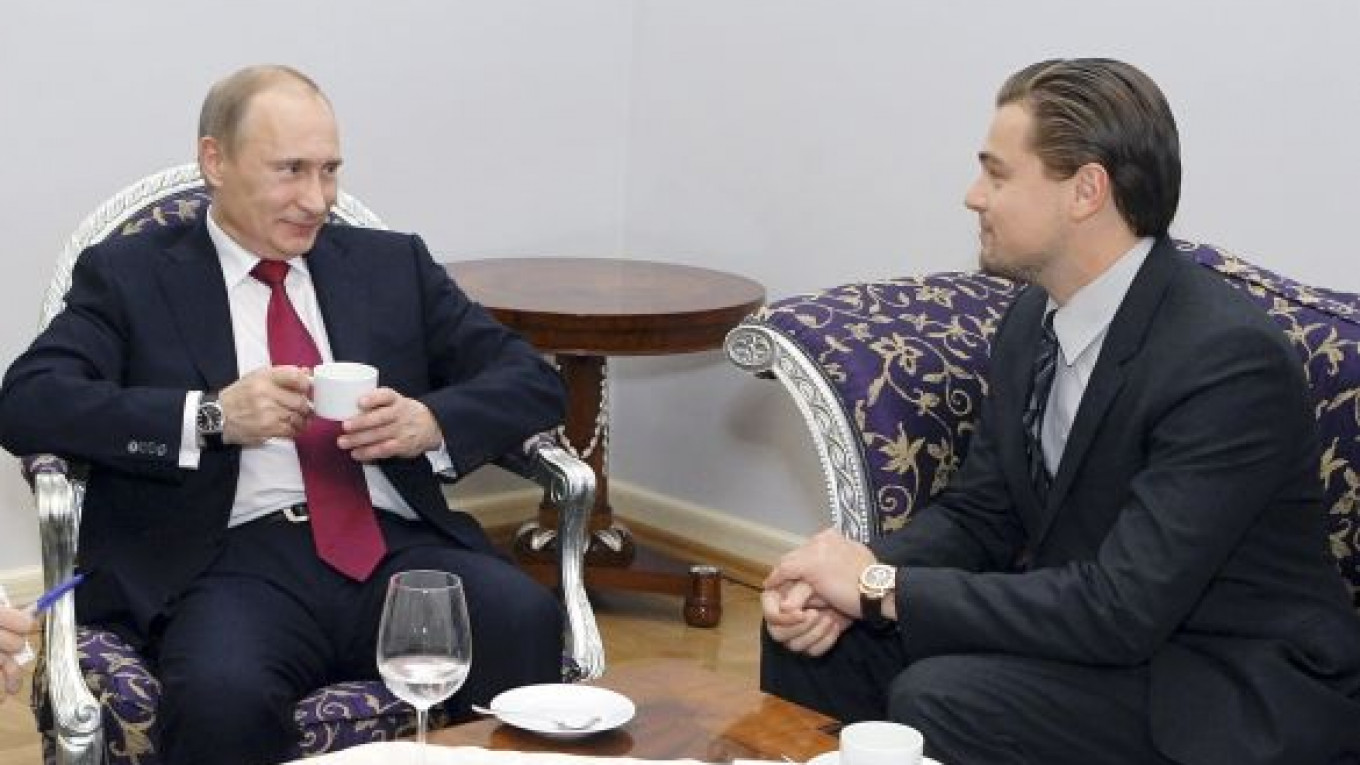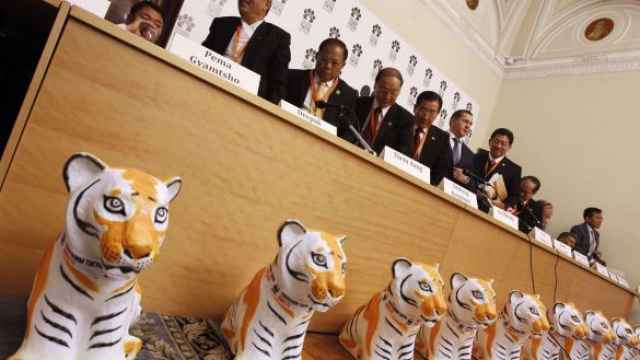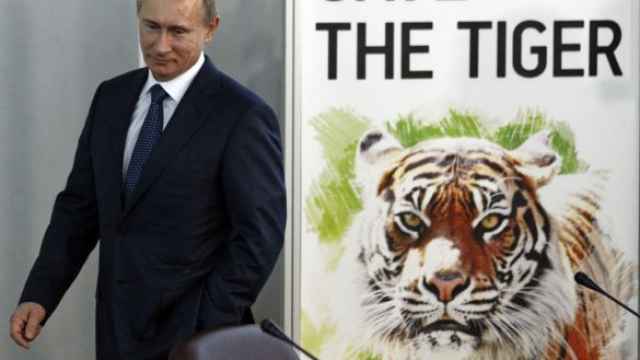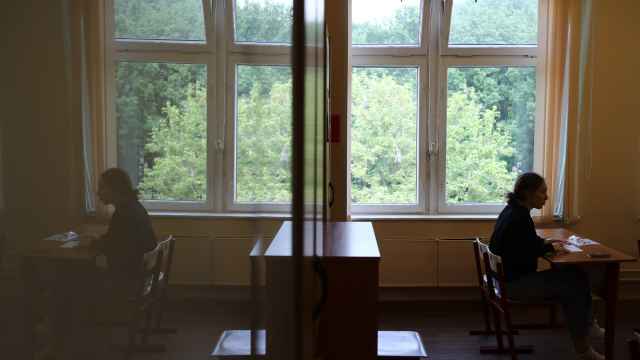ST. PETERSBURG — Leonardo DiCaprio braved scary skies to get to a summit devoted to saving the worlds’ tigers, donating $1 million to the cause and earning high praise from Prime Minister Vladimir Putin.
The Hollywood star arrived in St. Petersburg on Tuesday after two flight dramas, Putin said, just managing to make the meeting where officials from the 13 countries where tigers still live in the wild agreed to a program to save the big cats from extinction.
DiCaprio was one of more than 200 people aboard a Moscow-bound Delta flight that had to return to New York’s John F. Kennedy Airport on Sunday when other pilots reported seeing a flash in one engine of the departing plane. The actor then took a private jet that had to land in Finland early Tuesday for refueling because of strong wind, Putin said.
“Not everyone would be willing to take a plane again after what Mr. DiCaprio experienced, but he did,” he told the audience at a rock concert dedicated to the tiger conservation effort. “Here, in Russia, we call such a person a ‘real man.’”
“If wildlife and tiger conservation is in the hands of people with such character, we are destined to succeed,” he said.
DiCaprio, who watched Putin at St. Petersburg’s historic Mikhailovsky Theater, committed $1 million to World Wildlife Fund to help support anti-poaching efforts and protect tiger habitat, the group said in a statement Tuesday. DiCaprio, 36, has already helped the group raise $20 million for tiger conservation earlier this year, it said.
“Illegal poaching of tigers for their parts and massive habitat loss due to palm oil, timber and paper production are driving this species to extinction,” DiCaprio said. “If we don’t take action now, one of the most iconic animals on our planet could be gone in just a few decades. By saving tigers, we can also protect some of our last remaining ancient forests and improve the lives of indigenous communities.”
The number of tigers worldwide has plunged 95 percent over the past century, to just 3,200 tigers living in the wild. The Global Tiger Recovery Program estimates the 13 countries will need about $350 million in outside funding in the first five years of the 12-year plan.
The countries — including Russia, whose Far East is home to Siberian tigers, the largest tiger subspecies — have agreed to double the tiger population by 2022, crack down on poaching and illicit trade in tiger pelts and body parts.
Many of them, such as Laos, Bangladesh and Nepal, are impoverished, and saving tigers may depend on sizable donations from the West. The nations will be seeking donor commitments to help finance conservation measures, the agreement said.
“The goal is difficult but achievable,” said Putin, who has frequently used tigers to bolster his macho image, once shooting a full-grown female tiger with a tranquilizer gun and placing a tracking collar on her.
He said Russia could help revive tiger populations in neighboring countries such as Iran and Kazakhstan.
Russia was the only nation where the number of tigers has increased in recent decades — from several dozens in 1947 to some 500 now, Putin said.
Wildlife experts say, however, that Siberian tigers are still endangered.
The 13 countries where tigers still exist are Bangladesh, Bhutan, Cambodia, China, India, Indonesia, Laos, Malaysia, Myanmar, Nepal, Russia, Thailand and Vietnam.
(AP, Reuters)
A Message from The Moscow Times:
Dear readers,
We are facing unprecedented challenges. Russia's Prosecutor General's Office has designated The Moscow Times as an "undesirable" organization, criminalizing our work and putting our staff at risk of prosecution. This follows our earlier unjust labeling as a "foreign agent."
These actions are direct attempts to silence independent journalism in Russia. The authorities claim our work "discredits the decisions of the Russian leadership." We see things differently: we strive to provide accurate, unbiased reporting on Russia.
We, the journalists of The Moscow Times, refuse to be silenced. But to continue our work, we need your help.
Your support, no matter how small, makes a world of difference. If you can, please support us monthly starting from just $2. It's quick to set up, and every contribution makes a significant impact.
By supporting The Moscow Times, you're defending open, independent journalism in the face of repression. Thank you for standing with us.
Remind me later.






